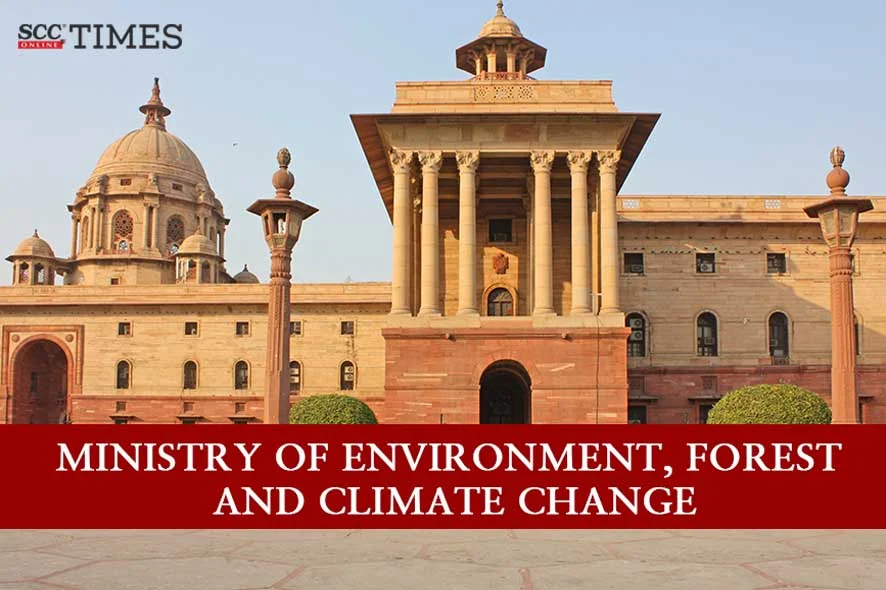On 4-4-2025, the Ministry of Environment, Forest and Climate Change notified the Environment (Construction and Demolition) Waste Management Rules, 2025 to address and resolve the growing concern of construction and demolition waste in India. The provisions will come into force from 1-4-2026.
Key Points:
-
These rules are applicable to all activities of construction, demolition, remodeling, renovation and repair of any structure.
Exceptions: does not apply to:
-
Atomic Energy Act, 1962 and rules made thereunder;
-
defence projects, and other projects of a strategic nature;
-
Waste generated due to natural disasters or by the act of war; and
-
Waste covered in any other sector specific waste management rules.
-
-
Management of Contruction and Demolition Waste:
-
Producer will be responsible for disposal and management of the construction and demolition waste;
-
The extended producer responsibility framework will be implemented and monitored through an online portal;
-
Entities falling in more than 1 category will have to register in those categories separately and comply with the provisions of these rules accordingly;
-
Central Pollution Control Board (‘CPCB’) will issue certificate of registration on receipt of application, within 15 days of such receipt;
-
No entity can carry out business without registration;
-
Registration can be revoked by CPCB for a period of up to 5 years along with environmental compensation charges in case the entity furnishes false information;
-
The corpus between CPCB and State Pollution Control Board (‘SPCB’)/ Pollution Control Committee will be in the ratio of 20:80.
-
-
Compliance of extended producer responsibility targets:
-
Local authorities will be responsible for ensuring compliance with extended producer responsibility targets;
-
It will be regulated through a waste management plan;
-
The debris part of the waste will be accounted for assessing the extended producer responsibility targets;
-
The materials in the construction and demolition waste usable or resalable, will not be considered for assessing the extended producer responsibility targets;
-
Until a recycling facility becomes operational, the local authority/ development authority, will establish and operate an intermediate waste storage facility itself or through an authorised operator and register it on the online portal;
-
The producer will have to deposit its entire waste to the processing facility directly;
-
Registered entities will be responsible for entering data on waste generation, handling, storage, recycling and value-added products in the online portal, which will be verified by the implementing agency, to match the material balance of the waste generated in a financial year;
-
A producer will have to meet their extended producer responsibility target through purchase of extended producer responsibility certificates from a registered recyclers irrespective of mode of deposition of waste;
-
Income from the transaction of extended producer responsibility certificates will be shared equally between the implementing agency and the recycler.
-
-
Utilisation of processed waste and monitoring:
-
Processed waste shall be utilised in all construction activities having built-up area of 20000 square meters or above;
-
Utilisation framework shall be implemented through the online portal with mandatory registration of entities;
-
Local authorities/ development authorities will act as monitoring authorities;
-
CPCB and SPCB will monitor utilisation of the waste targets through the portal in road construction activities.
-
-
Procedure for storage of waste and processed waste:
-
Collection points will be established by local authorities for collection of waste from source to processing facility or intermediate waste storage facility;
-
An intermediate waste storage facilities will be established in the following cases:
-
non-existence of a functional processing facility in the jurisdiction;
-
storage space constraints with the functional processing facility.
-
-
Intermediate storage of waste provided due to storage space constraints with the processing facility will be allowed for a duration of 120 days which can be extended up to 180 days.
-
-
Occurrence of any accident during collection, transportation, storage or processing of waste, has to be reported by the manager or in charge of the entity within 24 hours to the SPCB through telephone or e-mail.






